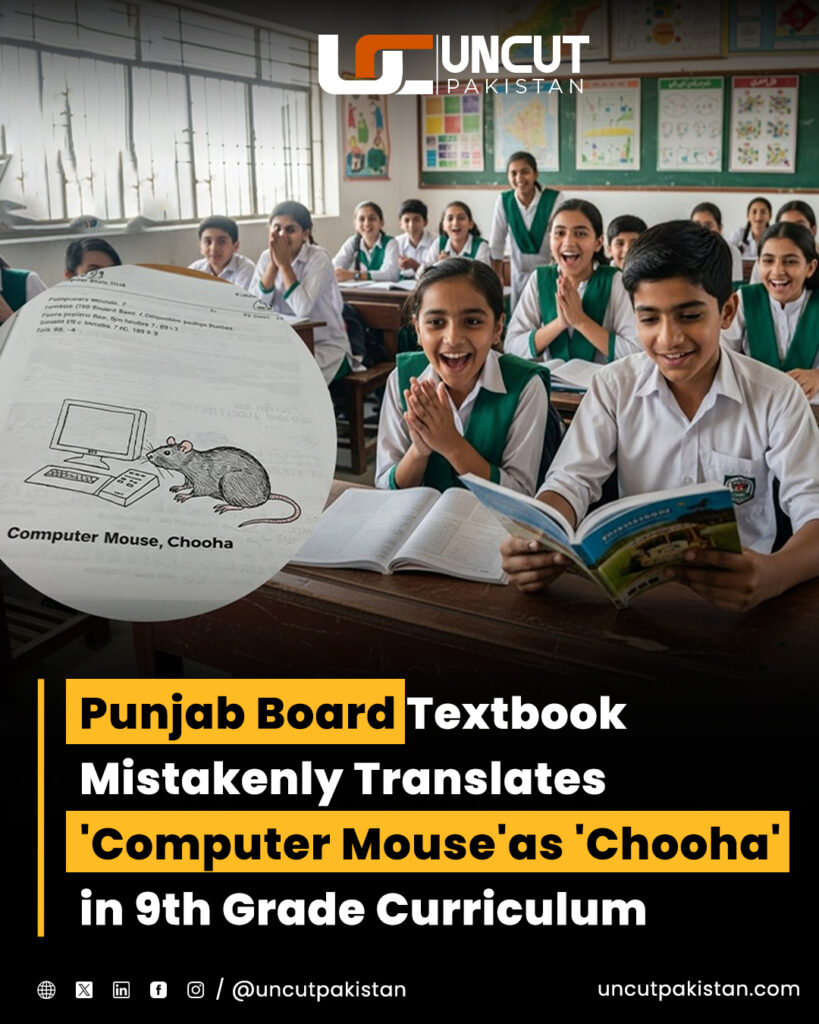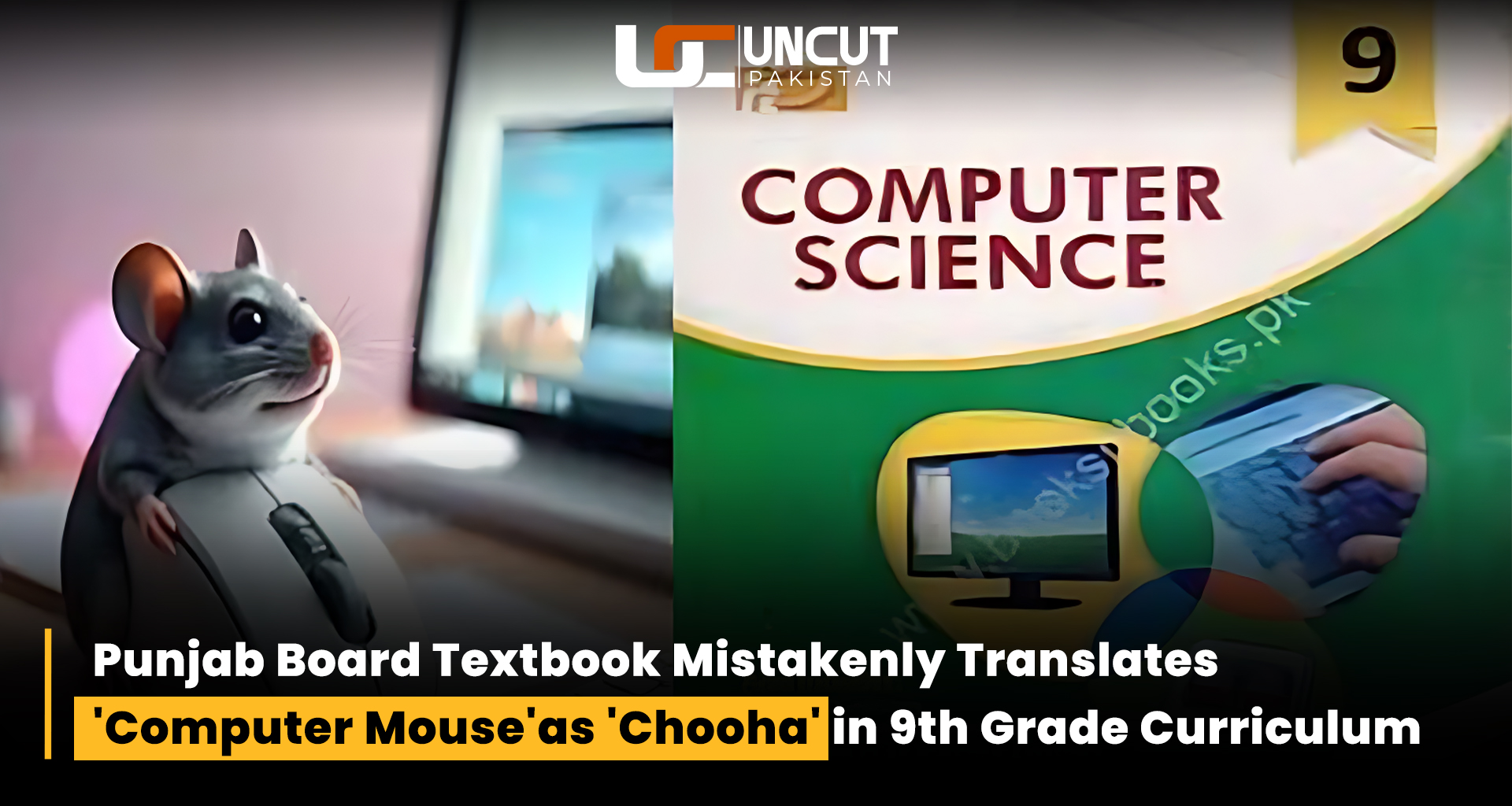The Error That Sparked Debate
The Punjab Curriculum and Textbook Board (PCTB) has landed in controversy after reports surfaced that the 9th-grade computer science textbook mistakenly translated the term “Computer Mouse” into Urdu as “Chooha” (rat). While the error may appear humorous at first glance, it has raised serious questions about the credibility and quality of Pakistan’s educational content.
Social Media Outrage
The error was quickly spotted by teachers and students and shared widely on social media platforms. Within hours, the mistake became a trending topic, with memes and jokes circulating under hashtags such as #Chooha and #TextbookBlunder. Users mocked the translation while also highlighting how such lapses reflect a systemic negligence in curriculum development.
Parents and Teachers Express Concern
Parents and teachers expressed disappointment and frustration over the blunder. They stressed that textbooks are considered the most reliable learning resources for children, and such mistakes can mislead students. One parent commented: “If textbooks can make such basic mistakes, how can we trust the accuracy of the entire curriculum?”
Teachers also pointed out that younger students often take textbook definitions literally, and such errors can lead to confusion in understanding technical concepts.

Experts Call for Reforms
Educationists argue that this mistake is not just a minor slip but a symptom of a larger structural problem. They insist that the development of technical subjects like computer science should always involve subject matter experts and IT professionals. Without expert consultation, literal translations and conceptual blunders are likely to continue, thereby weakening the quality of education.
Experts further recommend that certain technical terms, such as “mouse,” “keyboard,” and “internet,” should remain in their original English form to maintain global consistency and clarity. Literal translations, they say, often distort meaning and create unnecessary confusion for students.
PCTB Responds
Following the backlash, PCTB officials admitted the mistake and assured that it would be corrected in the next edition of the textbook. However, critics argue that reactive corrections are not enough, and there must be a systematic review and accountability mechanism to ensure such mistakes are prevented before books reach classrooms.
A Repeated Problem
This is not the first time Pakistan’s textbooks have come under scrutiny. In recent years, several errors have been reported, ranging from spelling mistakes and factual inaccuracies to misleading translations. These repeated incidents have fueled public demand for comprehensive curriculum reforms.
Conclusion
The mistranslation of “computer mouse” as “chooha” might have provided comic relief online, but it underscores the urgent need for modernization, expert involvement, and strict quality control in Pakistan’s education system. Unless reforms are implemented, such mistakes will continue to damage students’ trust in textbooks and hinder the country’s educational progress.

